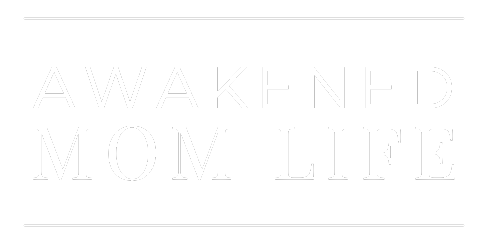Starting a healing journey is a big undertaking. It means figuring out where you want to make massive shifts in life. It’s not for the faint at heart. Many people think personal development is full of sunshine and rainbows, but that couldn’t be further from the truth.
Are you starting a journey into personal development? Or are you trying to figure out what’s next for you? I want to share my experience to help you avoid the same mistakes. In short, I’ve been through a gamut of healing modalities, from CBT therapy, EMDR therapy, coaching, reiki, crystals, and acupuncture, to personal growth seminars and certifications and reading any self-help book I could find.
I’ve been working to heal:
- childhood trauma that led to a life of depression and anxiety
- deep trauma wounds from losing my friend and then my fiance in sudden car accidents (two years apart)
- chronic illness and pain caused by emotional distress
Over the past decade, I’ve become a new person. I credit this to the personal development industry. So while I will share some of the industry’s dark side, overall, I support it. It’s a matter of trusting your intuition and constantly questioning, never taking something at face value.

The personal development industry has been around for years; one of the earliest known motivational speakers may be Ralph Waldo Emerson. And Zig Zigler and Tony Robbins dominated as motivational speakers in the 20th century. Today, the industry is booming, but as someone who has been on a healing journey for many years, I can tell you there are a lot of gaps, lies, and misinformation circulating in the personal development space.
I’m not immune to having been duped by coaches and buying into somewhat questionable concepts.
Here are the top 5 things I’ve learned about the personal development industry.
1. There is no regulation for the coaching industry
Unfortunately, anyone can slap the title coach onto their name and claim to be an expert. I’m not implying that all coaches are unqualified. I’ve worked with coaches that have helped me immensely and went through proper training to understand how to be a coach.
The best coach I ever had was my first life coach, Brian. He helped me face many of my fears. And he was a driving force in helping me take an exciting job in Chicago after years of dreaming. Yet, one thing he should have done better was not realize that I needed professional therapy. Or maybe he did know I needed professional help but was afraid to send me in that direction. I’m not sure. Today, he is a friend, and I appreciate what he did to help me grow.
I’ll dig into this more, but one of my biggest concerns with the coaching industry is the fact that there are people out there that could be doing more harm than good because they lack formal education when it comes to mental health.
I look back and see how many people could have given me better direction, but they didn’t. I was severely depressed and suicidal. Even though they helped me gain moments of clarity, that wasn’t enough to keep me safe.
Without the proper training, coaches can miss red flags in clients outside their scope of expertise. Or worse yet, they ignore red flags to turn a profit.
2. A significant problem exists with the lack of trauma-informed care
Since I started my healing journey over a decade ago, I’ve worked with many therapists and coaches. One of the biggest issues in the mental health and personal development industry is the lack of trauma-informed providers.
Frankly, I thought understanding trauma would be a fundamental requirement of being a therapist. Actually, it’s not.
One of my worst experiences with a business coach came when they had me participate in RIM, which is an excellent healing modality within itself. But, I had severe repressed trauma at the time, and after going through the sessions, I got worse. After poking at some significant emotional wounds, they essentially waved goodbye to me when the program ended.
Here’s the irony of this situation. After years of abuse, co-dependency, and lack of self-esteem, I didn’t know to speak up for myself. I also had (and still have) the tendency to push myself too far because I want to be good at things.
And because of my trauma, I trust others more than I trust myself, even when it comes to my body. So I put myself in a dangerous emotional situation that they (nor I) was prepared to handle.

3. It might take a while to find a therapist you like, and you should “shop around.”
The first time I went to therapy was in 2008 after my fiance passed away. I was distraught and didn’t know how to cope. I was severely depressed before he died, so his death sent me into a tailspin.
My first therapist was an older woman with thinning gray hair. I vividly remember the look of boredom and disinterest on her face each time I came in. Honestly, I think she was close to retiring and just wanted to be left alone. At least, that was my perception. I saw her for months without making progress. So I decided therapy wasn’t for me.
I didn’t see much point in it. It was until years later, when I was hospitalized after a suicide attempt, that I embraced therapy. The best therapist I ever had was a younger man in Chicago. I wish I could track him down and tell him to thank you. He really helped shift my perspective and gave me hope. While I struggled the entire time I saw him, it helped to lay a better foundation for years to come.
But I hadn’t yet realized that finding the right therapist was vital. Whenever I needed help, I would find someone online and book an appointment. Even if I felt uncomfortable with them or didn’t care for them, I’d keep going. Again, this is my trauma response.

I was taught from a young age that discomfort doesn’t matter. You do what you are told, don’t ask questions, and follow the rules. I wasn’t allowed to think for myself. So inherently, I apply this mindset to everything in life. It’s a work in progress to break because it’s so deeply ingrained.
It wasn’t until a therapist crossed the line that I finally started to embrace the client-therapist relationship as the key to healing. A young woman I was seeing around 2015 started texting me outside the scope of our therapy. She even once asked me if I was mad at her. When she sent me a text announcing her engagement with a picture of her ring, I decided it was enough.
You can try different therapists to determine who and what works best for you. You are paying for the service of a professional, so find someone who can help you the most.
4. Healing takes time, and it’s not linear.
One of my biggest misconceptions (and honestly, I still struggle to embrace) is that growth is not linear. Meaning you will have moments where you are better and moments where you are worse. We believe that as long as we work hard to heal, things will get incrementally better and better. To some degree, yes, that’s true. But you’ll still have setbacks, and they could be major.
Even now, I want to believe that everything will be hunky-dory one day. Yet, the reality of life and being a human being is that good can’t exist without bad and vice versa. That means you will always have waves. So the goal of healing is about handling those waves with more resiliency and calm.
Another thing is that healing is like an onion, each time you peel off a layer, you find new wounds underneath that are ready to be dealt with. I always thought, heck, peel the layer and throw it away and underneath is fresh new stuff. Nope. Every time you peel another layer, it’s fresh, raw, and painful.
Comparing your growth daily can feel frustrating; I encourage you to look at the bigger picture. How much have you improved over 1 year, 5 years, 10 years? Personal development is a marathon and not a sprint.














